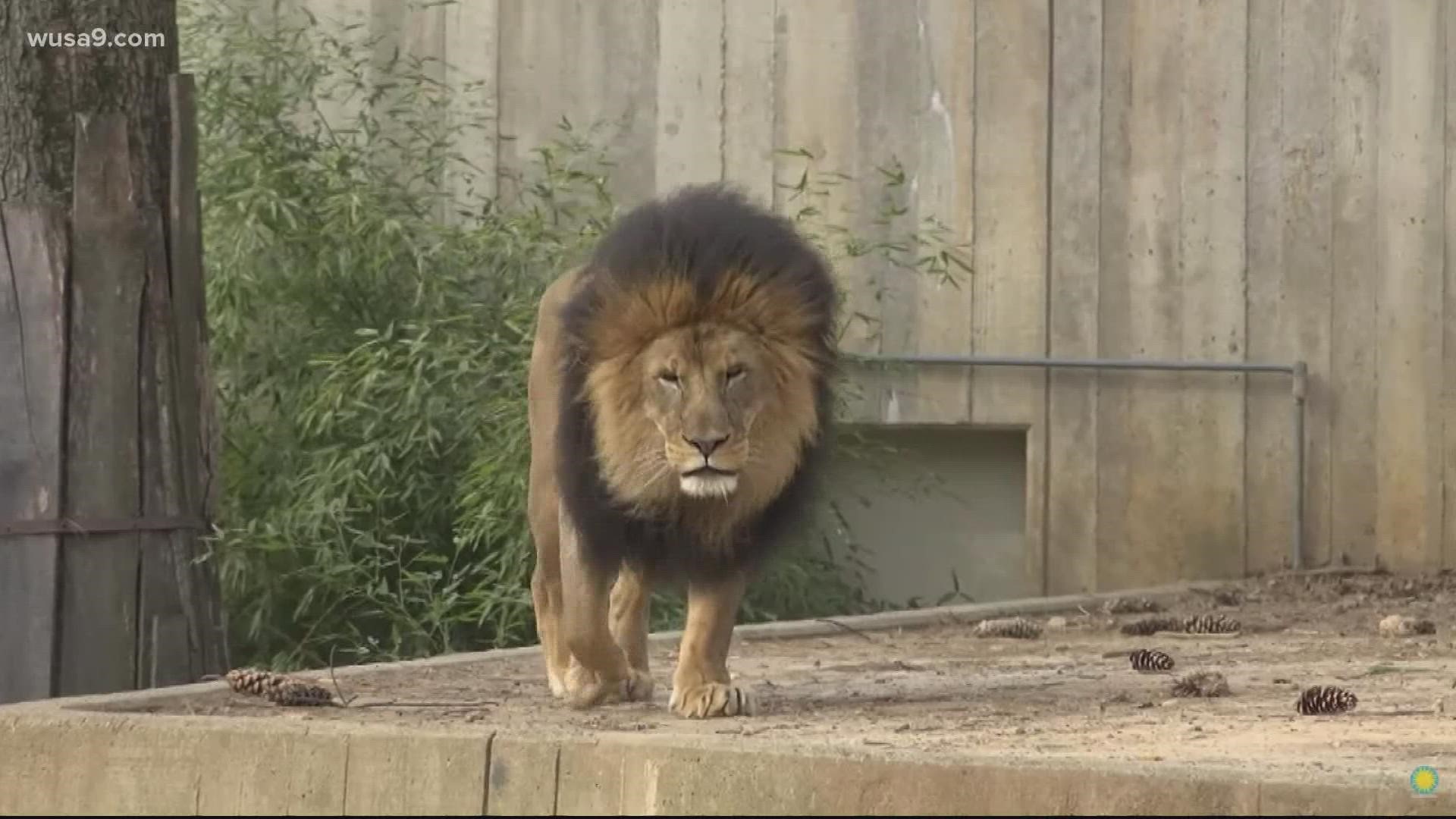WASHINGTON — A handful of Smithsonian lions and tigers are now on the upswing after being diagnosed with a “presumptive positive” for COVID-19 in September, the National Zoo said. They are now behaving and eating normally - a positive sign in their recovery.
When initially announced, animal keepers said that they had observed decreased appetites, coughing, sneezing and lethargy in six African lions, a Sumatran tiger and two Amur tigers.
All of the big cats were then treated with anti-inflammatories and anti-nausea medication to address discomfort and decreased appetite. In addition, all were also treated with antibiotics for presumptive secondary bacterial pneumonia.
The zoo maintained that the public was never at risk because of the substantial distance between animals and visitors.
The Smithsonian National Zoo said that they did conduct an investigation to determine the source of the infection, but have not yet been able to pinpoint it.
"While it is possible the infection was transmitted by an asymptomatic carrier, it has been standard practice for all animal care staff and essential staff to mask indoors in all public and non-public areas," the zoo said in a release Friday.
Lions are among the most susceptible to the virus that causes COVID-19.
Zoo workers in D.C. and Maryland are now using a special COVID-19 vaccine specifically for zoo animals. The vaccine, made by a company called Zoetis, is composed in a similar way to the Johnson & Johnson vaccine. Both vaccines use disabled adenovirus that delivers instructions to the body on how to beat the coronavirus.

